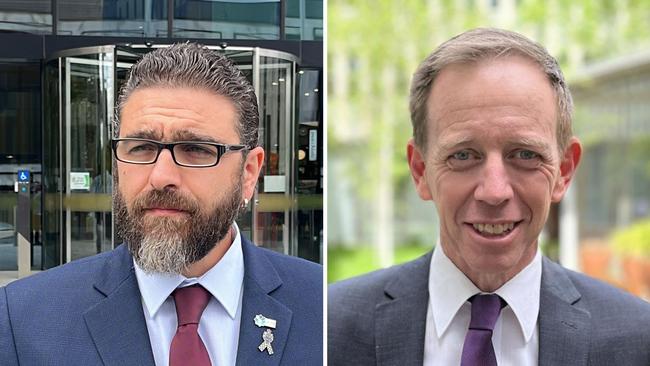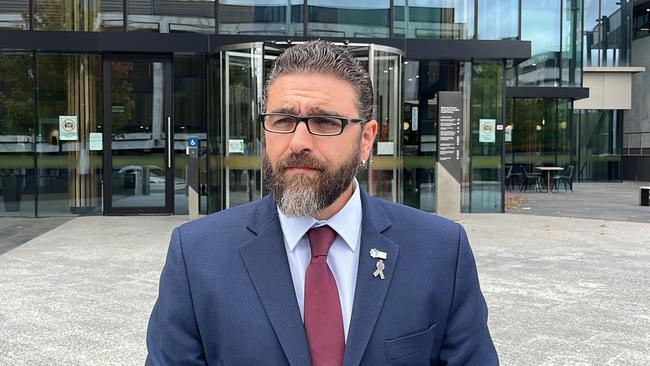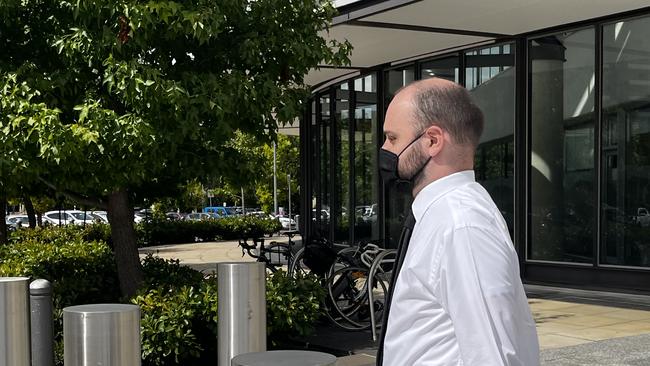Shane Rattenbury responds to allegations of lenient sentences
ACT Attorney-General Shane Rattenbury has responded to comments by a police union boss who says the courts are too lenient against offenders who target police.

Canberra Star
Don't miss out on the headlines from Canberra Star. Followed categories will be added to My News.
ACT’s Attorney-General Shane Rattenbury has rejected calls from a police union boss for a wide ranging review into the territory’s judicial system.
Earlier this week, Australian Federal Police Association president Alex Caruana called for a review into the judiciary after the Supreme Court sentencing of Thomas Matthews.
Matthews was sentenced to a 23-month jail sentence to be followed by a 12-month good behaviour order after he pleaded guilty to two counts of negligently causing Grievous bodily harm over a 2021 incident where he drove his car into three police officers.
During his sentencing hearing, Chief Justice Lucy McCallum told the court the driving incident was not the first time Matthews had assaulted police officers.

Only weeks prior to the driving incident Matthews had hit an officer with a knife and set fire to his own unit when police arrived at his residence for a mental health check.
Chief Justice McCallum told the court Matthews was found not guilty of arson by way of mental impairment by Justice Chrissa Loukas-Karlsson last year.
Mr Caruana spoke to reporters outside court where he raised concerns about how the Director of Public Prosecutions ran the case against Matthews.

“There were obviously other charges that we feel should have been put by the DPP,” he said.
“It indicates to us the DPP are underfunded, under resourced and they need to get some more experienced lawyers to keep the community safe.”
Mr Caruana said while he welcomed Matthews receiving a custodial sentence he said “is it fair that someone gets (a 23 month) sentence (for what he did)?”.
“In this particular case there was a previous count of occupational violence against our members which wasn’t given enough gravity,” he said.

In response to Mr Caruana’s concerns ACT Attorney-General Shane Rattenbury said police officers “deserve to be safe and protected from crimes just like other citizens”.
“People committing crimes against police can of course be charged with offences and sentenced independently by ACT courts, as they should be, based on all the circumstances of the crime,” he said,
Mr Rattenbury said ACT Courts and the DPP “perform critical functions that are independent and separate from politics and politicians”.
“While I recognise that sometimes individuals or sections of the community are not satisfied with decisions made by courts, or by the DPP, these decision-makers must weigh competing and complex issues,” he said.

“I am confident they are performing these roles in a highly professional, independent, and ethical way.”
Mr Rattenbury said he did not believe a “wholesale review” into the judiciary or DPP was appropriate, but noted the ACT Government was in a process of establishing an independent Law and Sentencing Advisory Council.
He said despite accusations of lenient sentences, ACT Courts “sentence offenders in a broadly similar way to other jurisdictions when it comes to issues such as the awarding of custodial sentences”.
When asked about a separate case where a man was sentenced to a non-custodial treatment order after breaking the leg of a police officer, Mr Caruana said treatment orders should be made in conjunction with jail time.
“(Without a custodial sentence) you aren‘t providing a deterrent to the community,” he said.
Mr Rattenbury said the fact an offender committed a crime against a police officer does not rule them out from accessing the Drug and Alcohol sentencing list.
“The ACT Drug and Alcohol Court sentences suitable offenders, those whose offending is rooted in serious drug and alcohol addictions, with the goal of rehabilitating them in the community, rather than sending them to prison,” he said.
“The independent evaluation of the Court has shown it is reducing offending, saving money for the community, and having a positive impact on the lives, relationships and health of the participants.”




